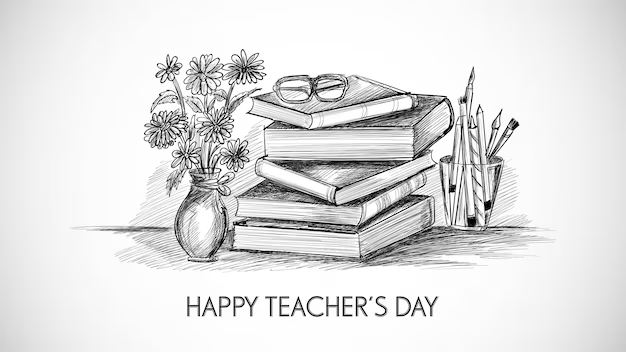By Rayees Ahmad Kumar
During the turbulence of the Second World War, when intellectuals and leaders were falling to violence, Adolf Hitler was once asked what should be protected at all costs. His response was telling: “Protect only the teachers; the whole nation will be rebuilt.” The statement, though coming from one of history’s darkest figures, reflects a universal truth—teachers are the true nation-builders. They shape minds, nurture values, and prepare generations to shoulder responsibilities far beyond their classrooms.
Teaching, often described as the “mother of all professions,” is among the oldest vocations known to humankind. Ancient India’s gurukul system stands as a testament to the reverence once accorded to educators. Students lived with their gurus in forests, learning not only scriptures and sciences but also life skills, discipline, and humility. Gurus were considered next only to God, embodying both wisdom and moral authority. Over centuries, systems of teaching have evolved—from humble ashrams and madrassas to sprawling modern universities—but the core role of a teacher as a guide, mentor, and conscience of society has remained intact.
Teaching is, in many ways, the greatest act of optimism. Every lecture delivered, every lesson explained, and every doubt clarified is an investment in a future unseen. Figures like Dr. Sarvepalli Radhakrishnan and Dr. APJ Abdul Kalam remind us how teachers leave behind legacies that outlast even the tallest monuments. Since 1962, India has celebrated Teachers’ Day on September 5, honoring Dr. Radhakrishnan’s birthday. When his students wished to mark the day as his personal celebration, he humbly declined and instead suggested it be observed as a tribute to all teachers. That humility itself was a lesson—a reminder that the profession is larger than the individual.
Learning, of course, is not confined to classrooms. Our earliest teachers are our parents, followed by society, experience, and even failure. Life itself remains the greatest teacher. I personally count myself fortunate to have learned under the guidance of inspiring mentors, whose influence shaped not only my education but also my decision to step into this noble profession.
The Kashmir Reality
In Kashmir, however, Teachers’ Day carries a different undertone. While the rest of the country celebrates teachers with ceremonies and floral tributes, educators here often find themselves unfairly blamed for systemic failures. Poor board results, flawed curricula, or institutional shortcomings are frequently laid at their doorstep, turning them into easy scapegoats.
Admittedly, the fault does not lie only with the system. A section of teachers, unable or unwilling to upgrade their knowledge, fall behind in adapting to new methods of teaching. Instances of negligence or unprofessional behavior—though limited—tarnish the image of the entire community. Yet, the larger injustice remains the excessive non-teaching duties thrust upon teachers: election work, census enumeration, or administrative assignments like yatra management. Each diversion from the classroom takes a toll on students’ education and erodes the teacher’s sense of professional identity.
Adding to the challenges is the frequent posting of teachers in remote areas without consideration for family or personal circumstances. Such policies may fill staffing gaps but at the cost of morale and efficiency. Teachers, stripped of dignity and overburdened with tasks outside their calling, cannot be expected to perform at their best.
Declining Respect for the Profession
What is more disheartening is the visible decline in respect for teachers. In many parts of India—including Kashmir—government functionaries like patwaris, constables, or clerks command more social recognition than educators. This inversion of values ignores a simple truth: without teachers, none of those professions would exist.

Contrast this with developed nations, where teaching retains its sanctity. Germany provides a telling example. When doctors, engineers, and judges once demanded salaries equal to teachers, Chancellor Angela Merkel’s reply silenced the debate: “How can I compare you to those who taught you?” The message was clear—teachers are not just another professional group; they are the foundation upon which all others stand.
Beyond Ceremonies
Commemorating Teachers’ Day with speeches and garlands is easy, but hollow if society continues to undervalue its educators. What is needed is structural respect: fair policies, adequate salaries, training opportunities, and most importantly, freedom from distractions that pull them away from their core duty. Only then can they fully devote themselves to shaping young minds.
Teachers are more than transmitters of knowledge. They are counselors, motivators, and custodians of moral and cultural values. They ignite curiosity, nurture discipline, and empower youth to rise above limitations. Societies that revere their teachers thrive not only intellectually but also morally and economically.
This Teachers’ Day, as we pause to honor the profession, let us also reflect on the real work that remains—ensuring teachers are given the dignity, resources, and trust they deserve. After all, every milestone we achieve, every success story we celebrate, carries within it the unseen fingerprints of a teacher.
The views expressed in this article are solely those of the author and do not necessarily reflect the opinions or views of this newspaper